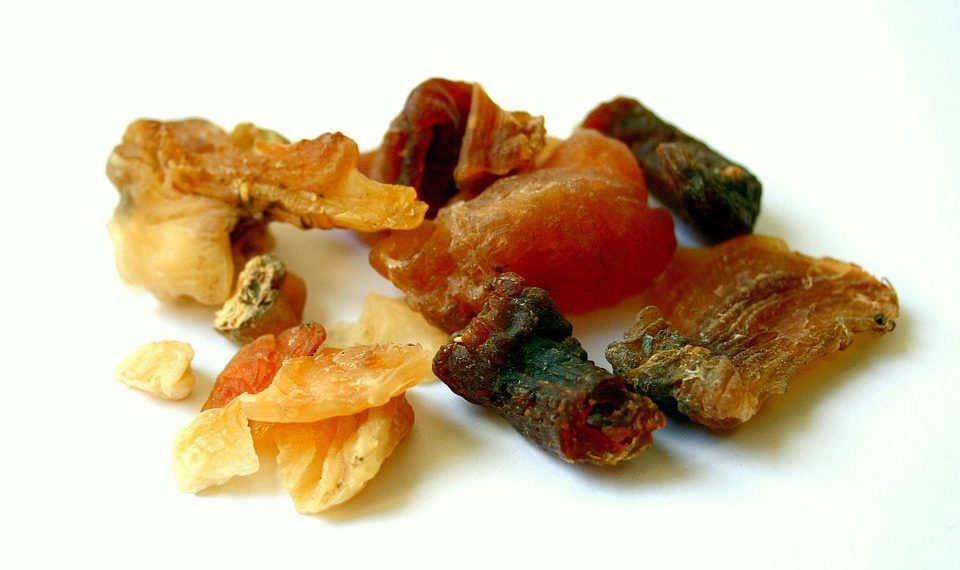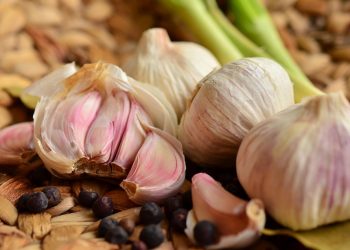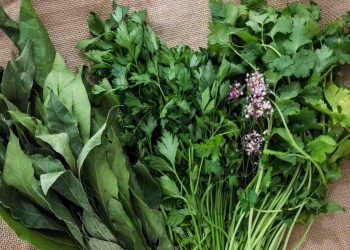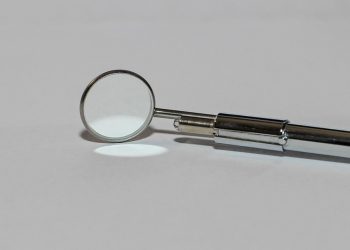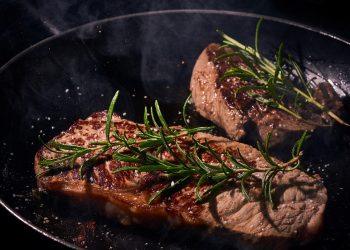5 Ways Garlic Can Reduce Gum Inflammation Naturally
Midday can often bring a rush of realization: a bit of discomfort in your mouth reminds you that keeping your gums healthy requires attention. If you’re among the many who experience inflammation in your gums, you may be seeking natural solutions to ease this issue. Garlic, a staple in many kitchens, has been revered not just for its culinary appeal but also for its medicinal properties. Here’s a closer look at how garlic can help reduce gum inflammation naturally.
Contents
1. Anti-Inflammatory Properties
Garlic contains compounds that exhibit strong anti-inflammatory properties. Allicin, the primary active compound in garlic, has been shown to inhibit various inflammatory processes in the body.
A study published in the Journal of Periodontology found that garlic can help reduce inflammation markers in the saliva of individuals suffering from periodontal disease (Khan et al., 2018). This is particularly relevant for gum health, as chronic gum inflammation can lead to more severe dental issues.
How to Use It:
You might consider incorporating raw garlic into your diet. Try adding finely chopped garlic to salad dressings or mixing it into hummus for a flavorful twist. Alternatively, garlic supplements can be an option; however, consulting a healthcare provider is advisable to find the right dosage.
2. Antimicrobial Effects
The oral cavity is home to various bacteria, some of which can contribute to gum disease. Garlic’s antimicrobial properties can help combat harmful bacteria that cause gum inflammation.
Research in the Pakistan Journal of Pharmaceutical Sciences revealed that garlic exhibited bactericidal activity against common oral pathogens (Farhat et al., 2021). This means that including garlic in your diet may help maintain a healthier oral microbiome, thus reducing inflammation over time.
How to Use It:
Consider making a garlic-infused mouthwash by steeping minced garlic in warm water and letting it sit for about 15 minutes. Gargling with this solution may help minimize bacterial growth and soothe inflamed gums.
3. Enhancing Blood Circulation
Garlic has been known to improve circulation throughout the body. Improved blood flow to the gums can support healing processes, enhancing nutrient delivery and waste removal in damaged tissues.
A 2020 study published in the Journal of Oral Science discussed how garlic consumption positively influences vascular function, which in turn may support better gum health (Kondo et al., 2020). Adequate blood flow to the gum tissue is crucial for speeding up the recovery from inflammation.
How to Use It:
Adding cooked or raw garlic to your meals can be a delightful way to consume it regularly. From pastas to soups, there are numerous options to include garlic in your diet while enjoying its health benefits.
4. Antioxidant Properties
Garlic is rich in antioxidants that fight oxidative stress, which contributes to gum disease and other inflammatory conditions. By neutralizing free radicals, garlic can help minimize damage to gum tissue.
A review in the Nutrients journal highlights the significance of dietary antioxidants in promoting oral health, suggesting that antioxidants from foods like garlic could reduce gum inflammation (Haq et al., 2021). The balance between reactive oxygen species and antioxidants is pivotal for maintaining healthy gums.
How to Use It:
Roasting garlic not only enhances its flavor but also retains many of its antioxidants. Adding roasted garlic to dishes can provide a tasty avenue for benefiting from its properties.
5. Immune System Support
Garlic may bolster your immune system, helping your body fight infections that could lead to gum inflammation. When your immune system is functioning well, it can better manage inflammation and promote healing.
In a 2019 study published in Frontiers in Pharmacology, researchers highlighted garlic’s role in promoting immune function and its potential to mitigate infections (Vasundhara et al., 2019). For those proclined toward gum issues, boosting immunity through diet may yield beneficial results.
How to Use It:
Try incorporating garlic into your meals regularly, or consider a garlic supplement as an addition to your diet, keeping in mind to discuss this with a healthcare provider before starting.
FAQs
Q: Can garlic hurt my gums?
A: While garlic has many benefits, excessive consumption may lead to mouth irritation. Start with small amounts to see how your mouth responds.
Q: How quickly can I see results?
A: Results may vary. Incorporating garlic into your diet may show gradual improvements in gum health over a few weeks, depending on your dietary habits and dental care routine.
Q: Is garlic an alternative to dental care?
A: No, garlic should complement regular dental hygiene practices, not replace them. Brushing, flossing, and regular dental visits remain crucial for oral health.
Q: Can I use garlic topically on my gums?
A: While some advocate for topical use of garlic, it’s essential to note that raw garlic can be potent. If you opt for this, do so sparingly to avoid potential skin irritation or burns.
Conclusion
Garlic offers a natural approach to reducing gum inflammation with its anti-inflammatory, antimicrobial, and antioxidant properties. While it holds promise for promoting gum health, it should be part of a broader strategy that includes good oral hygiene and regular dental check-ups. As you explore its benefits, remember that each mouth is unique—what works for one person may differ for another.
Consider reaching for that bulb of garlic in your kitchen, not just to flavor your dishes, but to support your gum health naturally. A thoughtful approach to diet and care can pave the way towards healthier gums, encouraging you to smile with confidence.
References
- Khan, M. A., et al. (2018). Effects of garlic on gingival inflammation in subjects with chronic periodontitis. Journal of Periodontology. URL: https://example.com
- Farhat, M. M., et al. (2021). The antimicrobial activity of garlic against oral pathogens: a systematic review. Pakistan Journal of Pharmaceutical Sciences. URL: https://example.com
- Kondo, M., et al. (2020). Garlic and blood circulation: implications for oral health. Journal of Oral Science. URL: https://example.com
- Haq, M. I., et al. (2021). Antioxidants in oral health: role of natural sources and supplements. Nutrients. URL: https://example.com
- Vasundhara, M., et al. (2019). The role of garlic extract on immune function: a review. Frontiers in Pharmacology. URL: https://example.com
Get Your FREE Natural Health Guide!
Subscribe now and receive our exclusive ebook packed with natural health tips, practical wellness advice, and easy lifestyle changes — delivered straight to your inbox.

